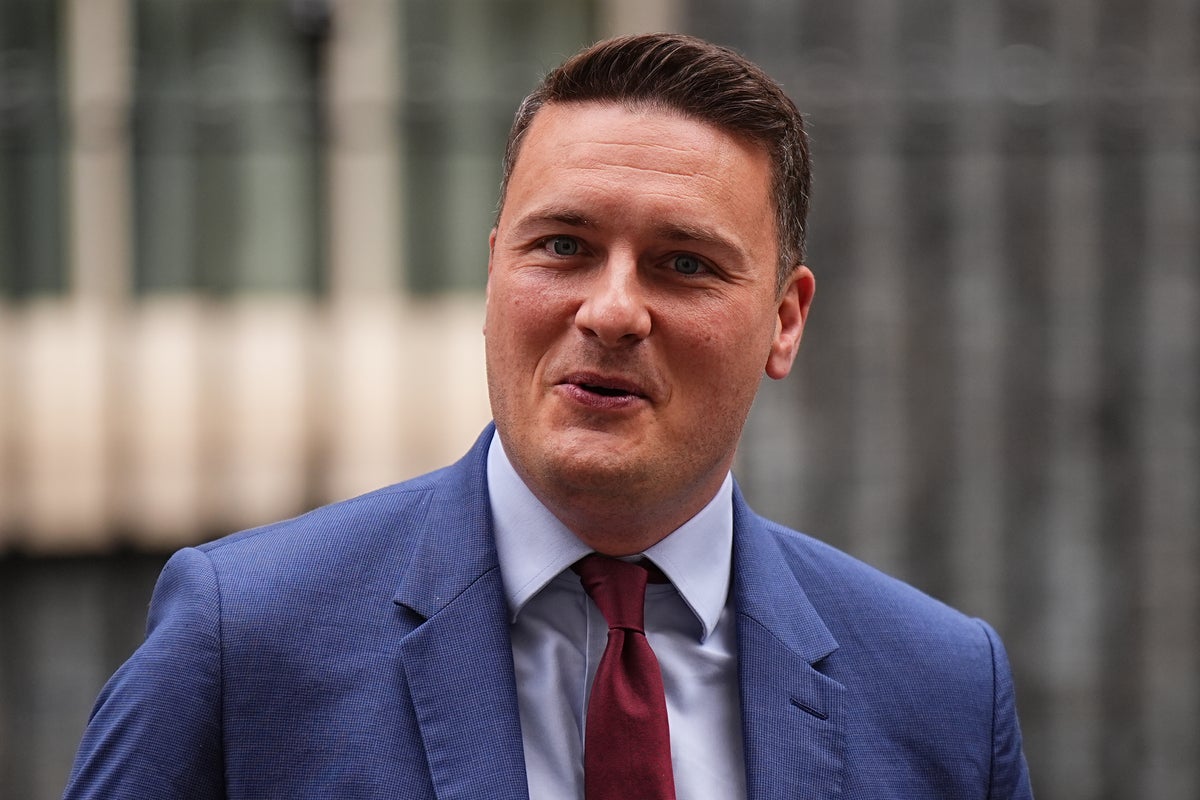Failing NHS bosses who fail to cut waiting times face having their pay docked by £15,000 under a drive to boost performance in the under-pressure health service.
Wes Streeting is outlining plans to freeze or dock the pay of bosses in beleaguered NHS trusts, while offering bonuses of up to 10 per cent for those who improve services.
The health secretary said the “carrot and stick reforms will boost productivity, tackle underperformance and drive-up standards for patients”.
But the Royal College of Nursing slammed the idea NHS chiefs could be handed bonuses higher than a nurse’s annual salary.
“No NHS boss could succeed without us,” executive director Patricia Marquis said. While NHS Providers, which runs hospital trusts, warned withholding bosses’ pay rises could have “unintended consequences” at a time when the health service is undergoing a major transformation.
Under the measures, NHS managers who move to poor performing areas could be handed a bonus of 15 per cent, worth up to £45,000.
Bonuses of 10 per cent will also be on offer for top performers, while pay bands for senior managers will also be overhauled in a bid to attract and retain staff.
But chief executives that rack up debt and fail to cut waiting lists or improve services could have up to £15,000 docked from their pay packets. The figure is based on last year’s 5 per cent pay rise and the highest current salary for an NHS trust chief executive of £299,250.
Mr Streeting said: “Some of the best businesses and most effective organisations across Britain and the world reward their top talent so they can keep on delivering.
“There’s no reason why we shouldn’t do the same in our NHS. We will reward leaders who are cutting waiting times and making sure patients get better services.
“But bonuses and pay rises will be a reward and not a right… Our carrot and stick reforms will boost productivity, tackle underperformance and drive up standards for patients.”
NHS England chief executive Sir Jim Mackey said linking pay to operational performance happens in “almost every other sector” and should also happen in the health service.
“If we are to consistently reach the standards of care the public rightly expect, it is clear that we need to reward those who are delivering for patients,” he said.
He added: “An important element of driving improvements must be strengthening the link between pay and operational performance at a very senior level – this happens in almost every other sector and there is no reason for the NHS to shy away from it, particularly when we rely on money that comes directly from taxpayers’ pockets.”
Charity the King’s Fund urged the government to be careful with the implementation of the incentive scheme, warning of the potential to create “hero leaders” who work in isolation.
“Incentives of the kind announced today may well focus attention but Ministers should be wary of potential unintended consequences that meeting a target takes precedence over delivering high quality patient care,” leadership and organisational development director Suzie Bailey said.
She added: “Many of the health leaders we speak to are in truth not driven by pay and they could certainly earn more in some other sectors. For them the real driver is deep commitment to their communities and the values of public service.”

